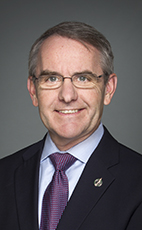Colleagues, before we begin our proceedings, I would like to say a few words.
We all recognize that this is a highly unusual sitting, given the extraordinary circumstances in which we all find ourselves presently.
As a result, you will notice that the arrangements we are used to are different today. We are fewer in number and other special measures have been put in place based on the recommendations of public health officials.
To that end, I understand that there will be agreement to see the application of Standing Order 17 suspended for the current sitting to allow members the practice of social distancing. I encourage all members to follow this and other recommended best practices during today's proceedings.
As a result, any member who wants to speak or address the Chair can rise from any seat in the House.
In addition, we will suspend the sitting every 45 minutes for approximately one minute in order to allow employees who provide support for the sitting to substitute for each other safely.
Finally, I would ask all members who are tabling a document or proposing a motion to sign the document and bring it to the Table themselves.
I wish to inform the House that pursuant to Standing Order 28(3), the Speaker sent a notice calling the House to meet this day, and I now lay this on the table.
What is more, on Sunday, March 22, the Speaker sent every member a message explaining why the House was being recalled. I would also like to inform the House that as part of the steps taken by the government under Standing Order 55(1), the Speaker published a special Order Paper and Notice Paper giving notice of a government bill.
I also wish to lay upon the table a letter from the Leader of the Government in the House of Commons, dated March 22, 2020.
I recognize the Leader of the Government in the House of Commons.

